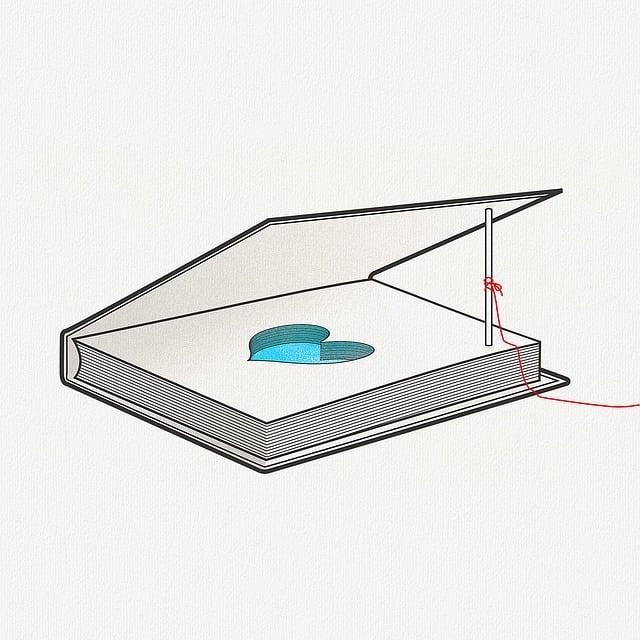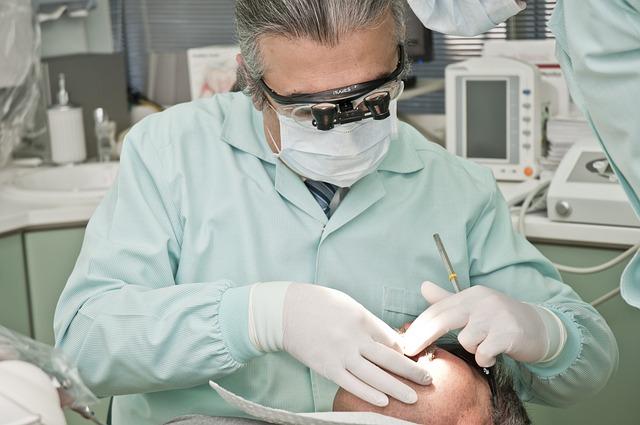Do you suffer from frequent neck pain? You may be surprised to learn that bruxism – or teeth grinding – could be the culprit. Let’s explore this connection in more detail.
1. Understanding the Connection: Bruxism and Neck Pain
Bruxism, commonly known as teeth grinding, can often be linked to neck pain. The connection between the two conditions lies in the muscles and nerves that run between the jaw and the neck. When a person clenches or grinds their teeth, the muscles in the jaw become tight and overworked, which can lead to tension and pain in the neck.
Moreover, bruxism can also cause misalignment in the jaw, leading to further strain on the neck muscles as they try to compensate for the imbalance. This can result in chronic neck pain that is difficult to alleviate without addressing the underlying cause of teeth grinding. It is important to recognize the relationship between bruxism and neck pain in order to effectively treat and manage both conditions.
To help alleviate neck pain caused by bruxism, individuals can consider incorporating relaxation techniques such as meditation or yoga into their daily routine. Additionally, wearing a night guard to prevent teeth grinding while sleeping can also help reduce strain on the jaw and neck muscles. Seeking professional help from a dentist or physical therapist may be necessary for more severe cases of bruxism and neck pain.

2. How Grinding Your Teeth Can Lead to Neck Ache
Grinding your teeth, also known as bruxism, can have far-reaching effects beyond just dental health. One common issue that arises from teeth grinding is neck ache. When you clench or grind your teeth, the muscles in your jaw become tense, leading to tension in the neck muscles as well. This tension can cause pain and discomfort in the neck area, sometimes extending to the shoulders and upper back.
In addition to muscle tension, teeth grinding can also contribute to misalignment of the jaw, which can further exacerbate neck ache. This misalignment puts added stress on the muscles and joints in the jaw and neck, leading to pain and stiffness. Over time, this can develop into chronic neck issues if left untreated.
To address neck ache caused by teeth grinding, it’s important to focus on treating the underlying bruxism. This may involve using a mouthguard at night to prevent teeth grinding, practicing stress-relief techniques to reduce tension, and seeking treatment from a dentist or specialist if necessary. By addressing the root cause of bruxism, you can help alleviate neck ache and improve your overall well-being.
3. The Impact of Bruxism on Neck Muscles
Bruxism, also known as teeth grinding, can have a significant impact on the muscles in the neck. The constant clenching and grinding of teeth can lead to tension and tightness in the muscles, which can result in pain and discomfort in the neck area.
Some of the ways bruxism can affect neck muscles include:
– Increased muscle tension: The repetitive motion of grinding teeth can cause the muscles in the neck to become tense and overworked, leading to stiffness and soreness.
– Restricted range of motion: As the neck muscles become tight and strained, it can limit the range of motion in the neck, making it difficult to turn or move the head comfortably.
– Headaches: The strain on the neck muscles from bruxism can also trigger headaches, as the tension radiates up into the head and causes discomfort.
Managing bruxism through techniques such as wearing a mouthguard at night, stress reduction, and relaxation exercises can help alleviate the impact on neck muscles and improve overall comfort and well-being.
4. Recognizing the Symptoms: Neck Pain and Bruxism
Neck pain and bruxism are common conditions that can have a significant impact on one’s daily life. Recognizing the symptoms of these issues is crucial in order to seek appropriate treatment and prevent further complications.
Neck pain symptoms may include:
- Stiffness or soreness in the neck
- Pain that worsens with movement
- Tingling or numbness in the arms or hands
- Grinding or clenching of teeth, especially during sleep
- Headaches or jaw pain upon waking
- Worn-down teeth or damaged dental work
- Custom Mouthguard: A dentist can create a custom-fitted mouthguard to wear at night, which helps to prevent teeth grinding and reduce strain on the jaw muscles.
- Physical Therapy: A physical therapist can provide exercises to strengthen neck muscles and improve posture, which can help alleviate neck ache caused by bruxism.
- Stress Management Techniques: Learning stress-reducing techniques such as relaxation exercises, meditation, and mindfulness can help reduce teeth grinding and neck ache associated with bruxism.
- Wear a custom mouthguard at night to protect your teeth from grinding.
- Practice relaxation techniques such as deep breathing or yoga to reduce stress, which can exacerbate bruxism.
- Avoid caffeine and alcohol, as these substances can worsen teeth grinding.
- Practice relaxation techniques: Techniques such as deep breathing, meditation, and yoga can help reduce stress levels, which in turn can help prevent teeth grinding.
- Use a mouth guard: A mouth guard can help protect your teeth from the effects of grinding while also helping to relax your jaw muscles.
- Avoid caffeine and alcohol: Both caffeine and alcohol can contribute to teeth grinding, so cutting back on these substances may help reduce symptoms.
- Wear a Night Guard: A night guard can help protect your teeth from grinding while you sleep, preventing jaw muscle strain that contributes to neck pain.
- Practice Stress-Relief Techniques: Stress is a common trigger for bruxism. By incorporating stress-relief techniques such as meditation, yoga, or deep breathing exercises into your daily routine, you can reduce teeth grinding and alleviate neck pain.
- Regular Jaw Exercises: Gentle jaw exercises can help relax the muscles and reduce the urge to grind your teeth. Incorporating these exercises into your daily routine can help break the cycle of bruxism-induced neck pain.
Bruxism symptoms may include:
5. Strategies for Relieving Neck Discomfort Caused by Bruxism
One way to alleviate neck discomfort caused by bruxism is to practice good posture throughout the day. Maintaining proper alignment of the spine can help reduce tension in the neck muscles. Be mindful of your posture while sitting, standing, and even sleeping to prevent unnecessary strain on the neck.
Another effective strategy is to incorporate neck stretches into your daily routine. Gentle stretches can help relax tight muscles and improve flexibility. Consider incorporating exercises like neck rotations, chin tucks, and lateral neck bends into your routine to target different areas of the neck and alleviate tension.
Additionally, applying heat or cold therapy can provide relief for neck discomfort. Heat can help relax tight muscles, while cold therapy can reduce inflammation and numb pain. Experiment with both methods to see which one works best for you, and consider using heating pads, hot packs, ice packs, or even a warm shower to soothe your neck muscles.
6. Seeking Professional Help: Treating Bruxism-Related Neck Ache
Bruxism, or teeth grinding, can often lead to neck ache as a result of the constant clenching of jaw muscles. Seeking professional help for this issue is essential in order to alleviate the discomfort and prevent further damage. Here are some treatment options that can help address bruxism-related neck ache:
By seeking professional help and exploring these treatment options, individuals suffering from bruxism-related neck ache can find relief and improve their overall well-being.
7. Preventative Measures: Managing Bruxism to Avoid Neck Pain
Bruxism, or teeth grinding, is a common condition that can lead to neck pain if left untreated. Here are some preventative measures you can take to manage bruxism and avoid neck pain:
It’s also important to maintain good posture throughout the day, as poor posture can contribute to neck pain in individuals with bruxism. Regular visits to your dentist can help identify any oral issues that may be exacerbating bruxism, allowing for early intervention and prevention of neck pain. By implementing these preventative measures and seeking professional support, you can effectively manage bruxism and reduce the risk of developing neck pain.
8. The Importance of Addressing Bruxism for Neck Health
Bruxism, or teeth grinding, can have a significant impact on neck health. This condition puts strain on the muscles in the jaw, face, and neck, leading to pain and stiffness. By addressing bruxism, individuals can alleviate these symptoms and improve their overall neck health.
One way to address bruxism is by wearing a custom-made mouthguard while sleeping. This device can help prevent grinding and clenching of the teeth, reducing the strain on the neck muscles. Additionally, practicing relaxation techniques such as deep breathing or massage therapy can help relax the muscles and reduce tension in the neck.
It is important to address bruxism not only for the sake of neck health but also for overall well-being. By taking steps to manage teeth grinding, individuals can prevent long-term damage to their teeth, jaw, and neck muscles. Prioritizing self-care and seeking treatment for bruxism can lead to improved neck health and a better quality of life.
9. Tips for Combating Bruxism and Alleviating Neck Tension
Bruxism, or teeth grinding, can be a source of tension in your neck and jaw. Here are some tips to help combat bruxism and alleviate neck tension:
10. Say Goodbye to Neckache: Breaking the Bruxism-Neck Pain Cycle
Bruxism, commonly known as teeth grinding, can lead to a vicious cycle of neck pain. The constant clenching and grinding of teeth puts strain on the jaw muscles, which can radiate pain to the neck. By addressing bruxism, you can effectively say goodbye to neckache.
Here are some tips to help break the bruxism-neck pain cycle:
In conclusion, bruxism can indeed cause a sore neck. To alleviate neckaches, addressing bruxism through a mouthguard and stress management is crucial. Take care of your teeth and your neck will thank you!

